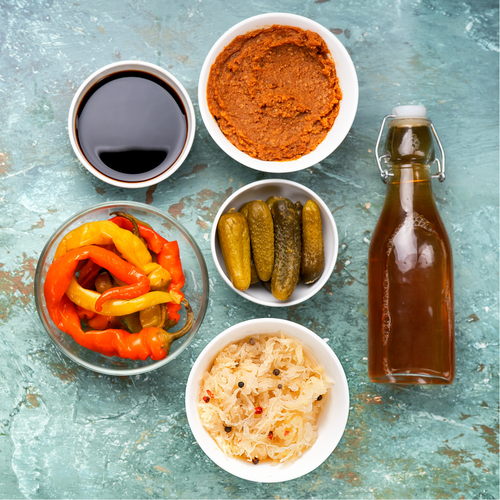CÉCILE PÉTUREAU’S 5 TIPS FOR BETTER MANAGING YOUR SUGAR CONSUMPTION:
#1 - Start your day with a protein-rich breakfast rich in fatty acids
Eating products high in sugar (white bread, jam, cereals, etc.) risks causing reactive hypoglycemia and a crash 2 hours after breakfast! Fruit in the morning? Yes, with oilseeds (almonds, hazelnuts, cashews, etc.) and/or a yogurt made from sheep's milk, goat's milk, or plant-based milk with no added sugar. Find our tips for eating well at breakfast here .
#2 - Good sugar
Good news, you can eat sweets without it being harmful to your health! To do this, you can opt for fruit sugar (mashed banana, dried fruit, applesauce, etc.), coconut sugar, or whole sugar (rapadura or muscovado). White sugar should be avoided as much as possible! And honey? Honey has very interesting properties, but it has a high glycemic index, with the exception of acacia honey. It should be consumed as a "functional food," for its antibacterial and anti-inflammatory properties.
#3 - The right time of day
The best time of day to eat something sweet is snack time, as this is when it will be best absorbed by the body. Sugar intake at this time of day will promote good serotonin synthesis, this famous hormone that regulates our mood and helps control sweet cravings. Favor natural sugars (fresh or dried fruit), unprocessed products (sourdough bread made with spelt or buckwheat, for example) and add a handful of oilseeds or oilseed puree to slow the absorption of sugar into the blood.
#4 - Impulses
Whether it's linked to our emotions, fatigue, or even stress, we sometimes have overwhelming sugar cravings. Consuming sugar triggers a feeling of immediate reward and pleasure (especially when the sugar is refined), by acting on dopamine synthesis. This is one of the reasons why we say that sugar begs for sugar. So how can we manage? Treat yourself by eating what you really want at that moment, even if it's junk food. In this case, take your time and savor this moment without any guilt. You'll see that your body regulates itself and you'll naturally want the following meal to be lighter.
#5 - Smoothies and fruit juices
Fruits are very rich in fiber, vitamins, minerals, and have many health benefits. However, when juiced, they lose their fiber and have a higher glycemic index than whole fruits, as fiber slows the passage of sugar into the blood. Industrial fruit juices should be avoided: they often contain added sugar and very few vitamins. And smoothies or juices from a juice extractor? Yes, as long as you combine them with vegetables: 20 to 30% fruit and 80 to 70% vegetables!
Cécile Pétureau - Naturopath - Find all her advice on her Instagram and Facebook pages














